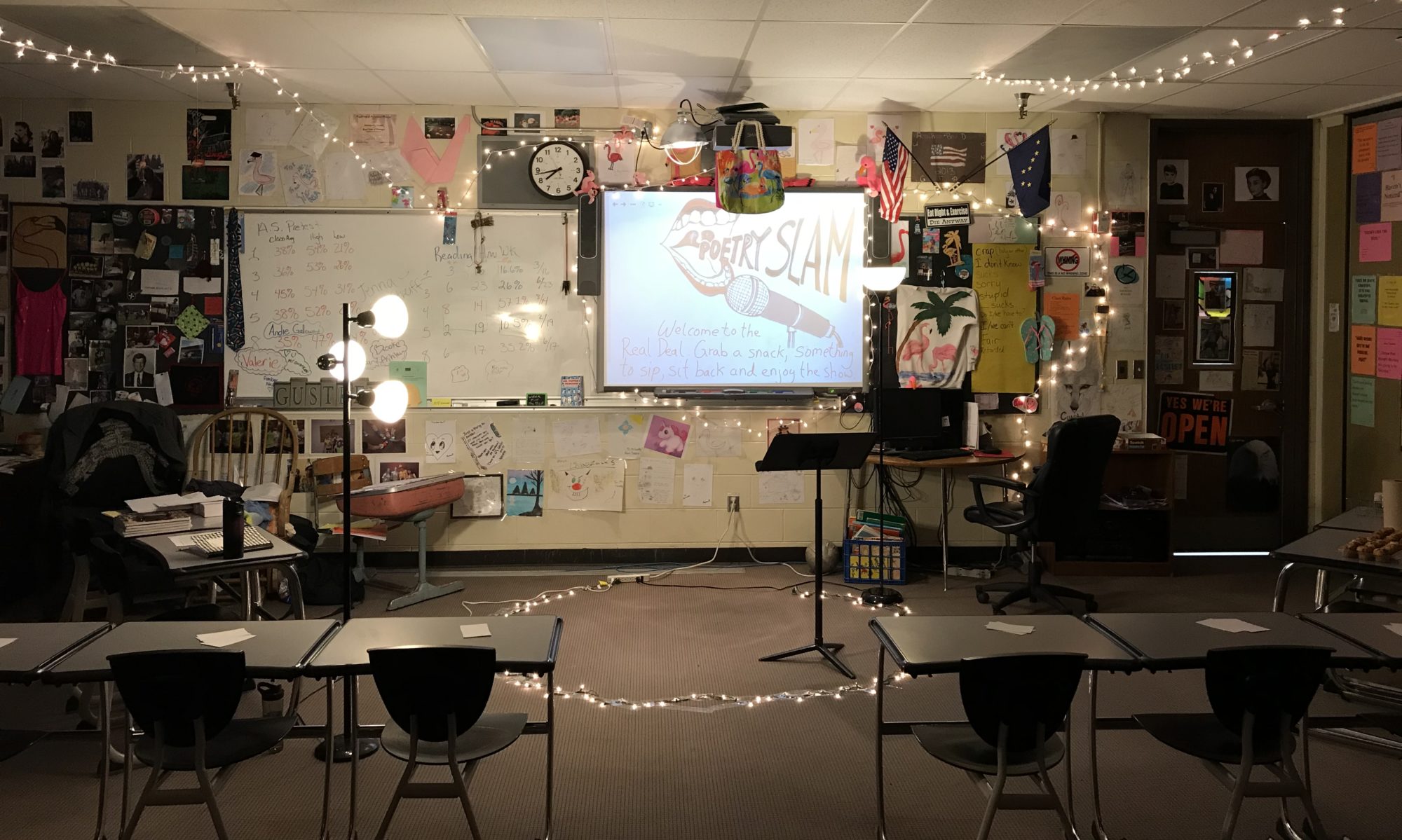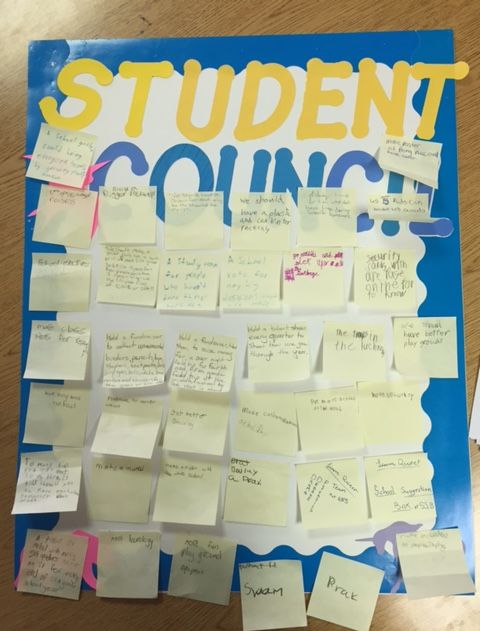More than a dozen students gathered in the classroom during their lunch. Trays of cheese pizza and fruit cups crowded the tables alongside chart paper. There were markers of every color, and the students were talking, writing, drawing, and engaging with a difficult question: How can we make the school a better place? Included in my portfolio is an opinion-editorial paper I wrote about the process of promoting student agency— a core focus of my philosophy of teaching.
One goal of elementary education is to help kids develop the skills, knowledge, and values necessary for citizenship. But who decides what is necessary? Different schools, and different programs within any school, often endorse different notions of “good citizenship” (Bickmore, 2001).
The notion at Nikiski North Star’s student council was to build leadership skills by inviting the soon-to-graduate 5th graders to leave their mark on a place where they had spent the last six years learning and growing. A difficult task was in front of these students: How could they choose between 38 different student-generated ideas and agree on one legacy project?
I should back up. At the beginning of the school year I volunteered to run the student council during my lunch break. I spoke with the principal and the 5th grade teachers to set it up so that students could eat their lunches in the classroom while we ran the council. I was expecting a handful of nerdy students to join me. I was surprised when nearly forty students showed up for the first meeting! The room was buzzing with genuine interest, an important ingredient to building student agency. Research has found that students improved academically when teachers construct their classrooms in ways that value student voice (Kahne & Westheimer, 2003).
Student voice is important from the very beginning of the lesson. During our first meeting of student council, I followed the cue of successful teachers whom I have observed: Set group expectations up front. With a few simple rule-setting activities, we improved students’ understanding of how they learn. When students articulate how they learn best, students also can help teachers do a better job of meeting student needs (Mitra, 2008).
To support the development of student agency, I will give students authentic challenges and projects. The best civic-education does more than teach facts about how government functions. It should create environments where students use the tools of democracy, such as debating issues and disagreeing respectfully. Parents may worry that teachers are indoctrinating their kids, and educators can be wary of stirring up controversy. But schools are more ideologically diverse than other settings, making them perfect testing-grounds for such skills (The Economist, 2017).
Research conducted in a middle-school English classroom in the United States also found that building student voice in schools helped to reengage isolated students by providing them with a stronger sense of ownership in their schools (Mora & Daylia, 2007). These students valued having their voices heard and respected. Teaching with a focus on student agency helps young people to gain a stronger sense of their own abilities (“Promoting youth civic engagement”, 2011) and develops an awareness that students can make real changes in their schools, not only for themselves but also for others.
References
The Economist. (2017, February 02). How to teach citizenship in schools. Retrieved July 18, 2018, from https://www.economist.com/international/2017/02/02/how-to-teach-citizenship-in-schools
Kahne, J., & Westheimer, J. (2003). Teaching Democracy: What Schools Need to Do. Phi Delta Kappan, 85(1), 34-66. doi:10.1177/003172170308500109
Mitra, D. L. (2008). Balancing power in communities of practice: An examination of increasing student voice through school-based youth–adult partnerships. Journal of Educational Change, 9(3), 221-242. doi:10.1007/s10833-007-9061-7
Bickmore, K. (2001). Student Conflict Resolution, Power “Sharing” in Schools, and Citizenship Education. Curriculum Inquiry. 31:2, 137-162. doi: 10.1111/0362-6784.00189
Mora, M. T., & Davlia, A. (2007, January). An Assessment of Civic Engagement and Educational Attainment. Retrieved July 27, 2016, from http://www.civicyouth.org/PopUps/FactSheets/FS_Mora.Davila.pdf
Promoting Youth Civic Engagement. (2011, November). Retrieved July 27, 2016, from http://www.cssp.org/policy/papers/Promoting-Youth-Civic-Engagement.pdf

